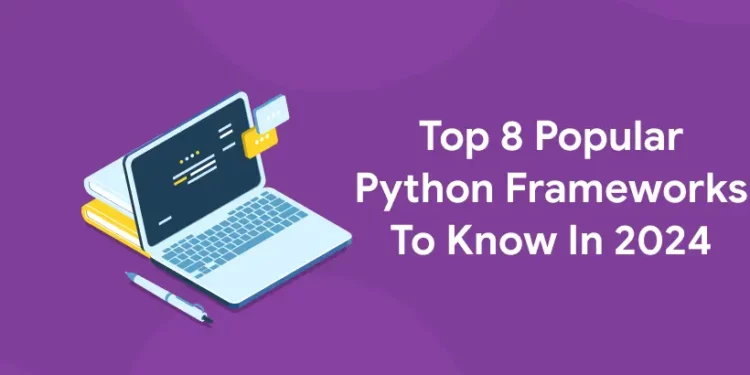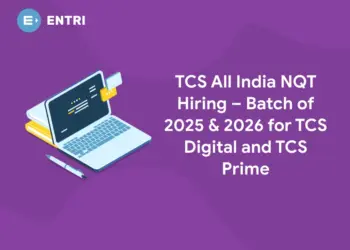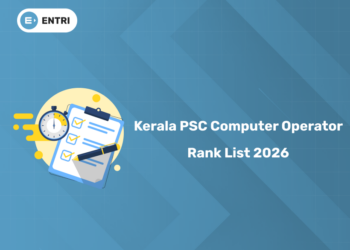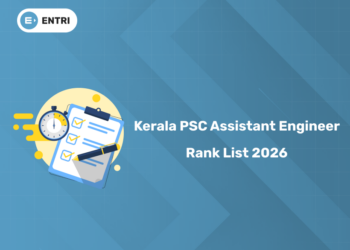Python is one of the most widely used programming languages, with up to 28% of the market share, and is utilised by leading corporations globally, including Google, Apple, and Netflix. Its popularity has increased dramatically over the past five years, and it contains all the features needed to quickly and efficiently create cutting-edge custom web applications. Because of its simple syntax, quick learning curve, and ease of use, coding is a great place for many beginners to start. It facilitates the development of particular application types and offers a plethora of well-liked Python frameworks for beginners.
Ready to take your python programming skills to the next level? Sign up for a free demo today!
Top 8 Python Web Development Frameworks of 2024
Python is one of the most used programming languages in the world, accounting for 28% of the market. With a variety of features and tools, these frameworks—from full-stack to lightweight—allow you to build robust web apps.
Having the appropriate framework may make a big difference in web development. These leading Python frameworks will help you regardless of the size of the project or application you’re developing.
Django
Django is a popular and powerful web framework for Python that makes it easier to create intricate online applications. Django’s broad ecosystem and built-in capabilities let you easily create scalable and secure online applications.
Django’s URL pattern definition is one of its main features; it makes it simple for developers to map URLs to views and functions. Cleaner and more understandable code is produced as a result of the codebase being easier to maintain and organise. Furthermore, Django comes with an integrated authentication system that gives safe user permission and authentication right out of the box.
By taking care of routine authentication chores like user registration, login, and password reset, this saves developers time and effort.
Key Features of Django:
- Definition of URL patterns for simple URL to view mapping
- Secure user authentication with an integrated authentication system
- Support for object-oriented programming languages for effective database administration
- Easy-to-use template system for dynamic webpage rendering
- Admin interface for simple and quick content administration
Django is a fantastic option for Python web development due to its scalability and versatility, which can be applied to both simple and complex online applications.
CherryPy
CherryPy is a popular framework for Python web development that is quick, reliable, and simple to use. It provides developers with a lightweight framework that puts an emphasis on effectiveness and simplicity.
For smaller projects or those looking for a more agile development process, CherryPy is a great option because it keeps things simple, unlike other frameworks that could have a high learning curve and plenty of dependencies. CherryPy’s ability to handle several HTTP servers ensures flexibility and compatibility on a variety of platforms, which is one of its main advantages.
This lets developers select any server that supports Python, including Nginx, Apache, and others, depending on what they need. CherryPy lets you concentrate on developing your web application rather than worrying about performance or server compatibility problems.
Key Features of CherryPy:
- Minimalistic Approach: CherryPy’s design philosophy is based on clarity and simplicity, which makes it simple to use and comprehend.
- Built-in Tools: By including built-in tools for caching, sessions, encoding, and other tasks, the framework minimises the requirement for third-party libraries.
- Support for Multiple Platforms: CherryPy is compatible with your favourite programming environment and may be used on a number of platforms, including Windows, macOS, and various Unix-based installations.
- Flexibility: CherryPy’s basic design lets developers modify and expand the framework to meet the unique needs of their projects.
CherryPy gives you the simplicity and resources you need to quickly prototype a web application, whether you’re a novice or an experienced developer seeking for a lightweight framework. In the field of Python web development, its stability, speed of development, and simple style make it an invaluable tool.
TurboGears
A robust and flexible Python web framework, TurboGears provides developers with an extensive feature set and toolkit for creating full-stack web applications. Using TurboGears, you can make effective and reliable web solutions by utilising Python’s power and versatility.
The full-stack capacity of TurboGears is one of its main features. This indicates that TurboGears offers every element needed to create a web application’s front end and back end. TurboGears provides comprehensive support for handling HTTP requests, maintaining databases, displaying dynamic web pages, and implementing user authentication. You can benefit from TurboGears’ integrated support for numerous databases.
You can work with any popular database system, such as PostgreSQL, MySQL, SQLite, or any other, because TurboGears connects with them effortlessly.
Key Features of TurboGears:
- Model-View-Controller (MVC) design for clear concern division
- Multiple database support makes it adaptive and flexible.
- Easy-to-use command-line tools for productive development
- A framework for integrated testing that guarantees the dependability and quality of your code
- Using template engines to create dynamic and eye-catching webpages
So, TurboGears is definitely a framework to take into consideration if you’re searching for a Python web framework that offers an extensive toolkit for developing full-stack online apps. It is a great tool for developers of all skill levels because of its adaptability, simplicity of use, and wealth of documentation.
Related Article: Top 7 Python Backend Frameworks
Web2Py
A powerful cross-platform Python web framework called Web2Py makes web application development easier. Because of its ease of use and abundance of features, Web2Py is a preferred option for developers due to its versatility.
The cross-platform interoperability of Web2Py is one of its main benefits. Regardless of whether you are building on Linux, macOS, or Windows, Web2Py guarantees that your web application will function flawlessly in all situations.
This frees developers from worrying about incompatibilities and lets them concentrate on writing code. The integrated web-based Integrated Development Environment (IDE) of Web2Py is another noteworthy feature. It offers an extensive toolkit for organising and debugging your online applications.
Development tasks are made more effective and efficient by the IDE’s capabilities, which include code highlighting, an interactive debugger, and a robust web-based management interface.
Simplifying Database Management
The Web2Py provides an integrated database abstraction layer that streamlines database management.
Several database backends, including as MySQL, PostgreSQL, SQLite, and others, are supported by the framework. Without the need for intricate SQL statements, Web2Py allows developers to design database models, run queries, and manage database migrations with ease.
Upgraded Security Features
Web development places a high premium on security, and Web2Py comes with a number of built-in security mechanisms to safeguard your online apps. Input validation, protection against cross-site scripting (XSS), and the avoidance of typical security flaws are some of the features included in the framework.
Your web apps will be strong and safe from any dangers thanks to these security precautions. For developers wishing to create cross-platform web apps quickly and easily, Web2Py is a dependable option because of its robust capabilities, user-friendly interface, and cross-platform compatibility.
Grok
Grok is a feature-rich and durable Python web framework, based on the Zope toolkit. It is a great option for developers that value simplicity and efficiency because it doesn’t repeat itself (DRY) and adheres to convention over configuration.
Grok is a robust framework for creating web applications, complete with integrated features that improve scalability, security, and modularity. Grok’s connection with the Zope toolkit, a set of reusable parts and modules for creating enterprise-level applications, is one of its main benefits.
Grok is now a strong framework for intricate web development projects thanks to this integration, which allows it to take advantage of the sophisticated features and capabilities of the Zope environment.
Key Features of Grok:
- Convention over configuration: Grok adheres to a predetermined set of conventions, freeing developers from the burden of configuring specifics and allowing them to concentrate on application logic.
- Sturdy object database: ZODB, an object-oriented database included with Grok, makes it simple and effective to store and retrieve Python objects.
- Integrated data security: Grok has built-in tools for maintaining data confidentiality and integrity as well as role-based access control.
- Modular architecture: Grok encourages the construction of reusable components, which facilitates the maintenance and expansion of applications.
For developers hoping to create powerful and efficient online applications, Grok is a useful framework because of its focus on scalability, simplicity, and integration with the Zope toolkit. Grok offers the tools and resources to accelerate your development process and provide online solutions of the highest calibre, regardless of your level of experience with Python development.
Ready to take your python programming skills to the next level? Sign up for a free demo today!
Pyramid
Pyramid is a really strong and versatile choice for Python web development frameworks. Pyramid is a great option for web application development because it provides developers with a wide range of tools and capabilities, which are utilised by industry heavyweights like Mozilla and Yelp.
Pyramid’s ability to map URLs is one of its main advantages since it makes it simple for developers to create and maintain intricate URL routes. This improves the usability and maintainability of web applications by simplifying their structure and organisation. Additionally, Pyramid provides thorough support for HTML structural validation, guaranteeing that your online application complies with standards and best practices.
Furthermore, Pyramid offers an adaptable framework for authorization and authentication that makes it simple to set up access control and user authentication.
Key Features of Pyramid:
- Flexible URL mapping to handle intricate routes
- Validation of HTML structure for compliance with recommended practices
- Entire templating for streamlined web development
- Adaptable system for permission and authentication
All things considered, Pyramid offers programmers a dependable and adaptable framework for Python web development. Building dynamic and scalable web applications is popular due to its broad feature set and backing from big companies.
Flask
The well-liked lightweight Python web framework Flask gives programmers an easy-to-use and adaptable method for creating web apps. Flask’s simple design lets you concentrate on what matters most without taking up extra space. For small to medium-sized projects when efficiency and simplicity are crucial, it is a great option.
The integrated development server and debugger of Flask, which make it simple to test and debug your application during the development process, is one of its primary advantages. This function offers a smooth process for error detection and repair, saving you time and effort.
Furthermore, Flask facilitates RESTful request dispatching, which makes it simple to create APIs and manage a variety of HTTP methods. An additional benefit of adopting Flask is its integration with Jinja2 templating. You may generate dynamic and reusable HTML templates using Jinja2, a potent and popular templating engine.
You can effortlessly detach your application logic from the presentation layer by combining Flask and Jinja2, which will help you write more organised and maintainable code.
Key Features of Flask
- Simple and light-weight style
- Integrated debugger and development server
- RESTful request dispatching
- Combining Jinja2 with templating
All things considered, Flask is an excellent framework for developers searching for a quick and effective way to handle web development. For many Python developers, it is the preferred option due to its ease of use, adaptability, and integration possibilities.
Grab the opportunity to learn Python with Industry Experts! Get a free Demo Here!
Bottle
Bottle is the ideal lightweight Python web framework for small-scale projects if you’re seeking for one. Its easy-to-use yet robust features and few dependencies make it quick and easy to develop and launch online apps. Bottle’s neat and flexible URL routing system is one of its best features. Handling various request types is a breeze when you use a straightforward syntax to construct your routes.
Bottle has you covered whether you’re using RESTful APIs, managing form submissions, or providing static files. It has built-in template engine functionality that makes it easy to generate dynamic web pages in addition to routing capabilities. Using the data from your application to create HTML content is simple because the template engine is fast and Pythonic in nature.
Key Features of Bottle:
- Lightweight and minimalist: Bottle is perfect for small projects where simplicity and performance are top considerations because it has a short codebase and few dependencies.
- URL routing: Bottle is flexible and adaptable to a range of use cases since it makes it simple to design your URL routes and handle different kinds of requests.
- Template engine built-in: Bottle comes with a strong template engine that lets you create dynamic content for your webpages.
- Extensible: Bottle is a small-scale framework that can be extended in a very flexible way. To improve its functioning, adding plugins and extensions is simple.
Bottle is a Python web framework that is ideal for developers working on small-scale projects since it offers the ideal blend of functionality and simplicity. It is an effective tool for quickly creating and deploying web applications because of its simple design, clear URL routing, and integrated template engine. Try Bottle and see how much speed and flexibility it can add to your development process.
Conclusion
These top 8 Python web development frameworks provide a wide range of options for building powerful and efficient web apps. Whether you’re searching for a lightweight framework like Flask or a full-stack framework like TurboGears, these frameworks offer the tools and functionality you need to improve your web development experience. Python is one of the most popular programming languages in the world, and as such, Python Web Development Frameworks are in high demand.
Experience the power of our python course with a free demo – Enroll now!
Entri: Best Python Programming Course Online
The online Python programming course from Entri Elevate offers a thorough and organised learning experience to help you learn the language from the ground up. This advanced course is suitable for students of all ability levels, regardless of experience level. Develop a solid foundation in Python programming with practical projects, real-world examples, and experienced mentoring. An interesting educational experience is guaranteed by our interactive platform. Plus, get hired right away with help from an internship and placement!
Related Articles
🚀 Start Coding Today! Enroll Now with Easy EMI Options. 💳✨
Gain expertise in Django and open doors to lucrative opportunities in web development.
Start Learning With EMI Payment OptionsFrequently Asked Questions
Which is the most popular Python framework?
Django is a popular open-source full-stack Python framework that incorporates all of the necessary Python capabilities by default.
What is the fastest Python framework?
FastAPI is a modern, fast (high-performance) web framework for constructing Python 3.8+ APIs using normal Python type hints.
Which is better Django or Flask?
Django is typically used for larger, more sophisticated projects that benefit from its “batteries included” approach and a plethora of built-in functionality. For microservices or basic applications, Flask is a suitable option.
What web framework should I start with?
Any web framework that meets their requirements can be learned by web developers. For example, web developers can start by learning React if they wish to work on the frontend. Another framework that is regarded as being simple to learn is Django.












